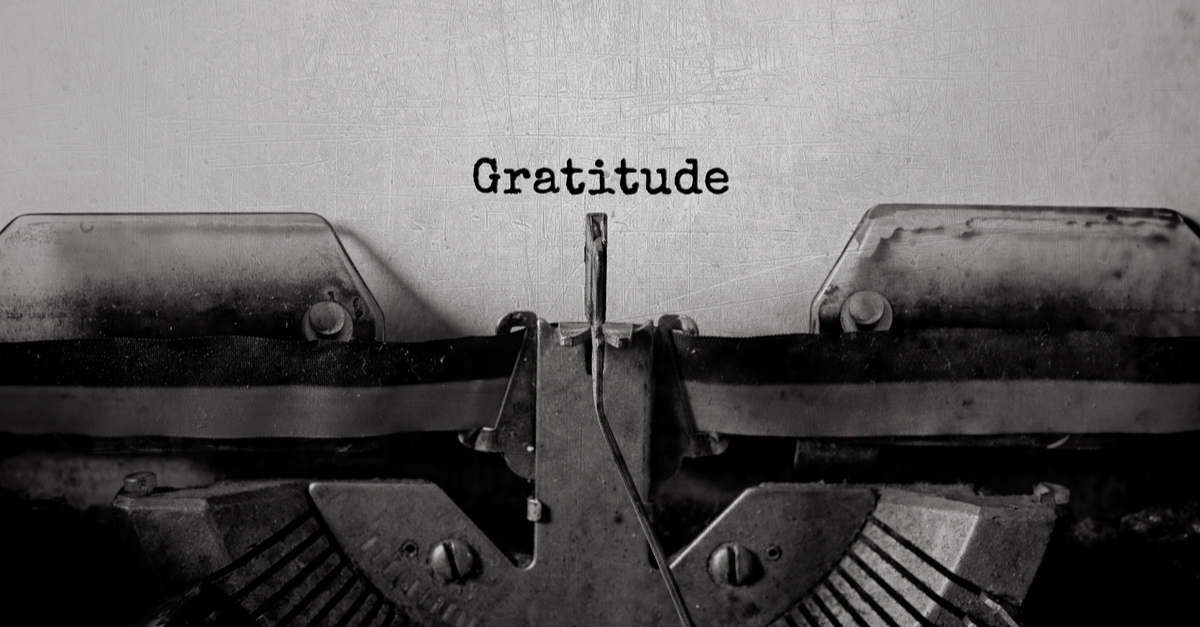Moving From Grief to Gratitude
 Scott Brassart
Scott Brassart
As anyone who follows my writing already knows, I am a huge believer in the power of gratitude. For me, gratitude is one of the most powerful tools of recovery and healing, so much so that I create a ten-item gratitude list every single day as part of keeping myself on-track in life.
What I don’t write about nearly as much is grief. Because who wants to hear about grief, right? Not me, and probably not you. But sometimes we need to discuss it. After all, grief often precedes gratitude – especially for addicts. Common losses that addicts need to grieve include:
- Loss of trust
- Loss of autonomy
- Loss of relationship security
- Loss of financial security
- Loss of social standing
- Loss of familial standing
- Loss of a primary coping mechanism (the addiction)
Grieving the loss of the addiction (along with relational and other losses related to the addiction) is not a one-off event. It’s ongoing, as new losses continually surface. And the long-standing habit of most addicts, myself included, is to avoid the types of emotional discomfort wrought by grief. However, it is important for us to experience these feelings of loss. Otherwise, those feelings cannot move through and out of our bodies.
Equally important is the fact that grief clears the way for gratitude.
As stated earlier, gratitude is, at least for me, one of the most powerful tools of recovery. I find that it is actually a better coping mechanism than my addiction ever was. If you don’t believe me, try it. It is almost impossible to experience gratitude and emotional discomfort at the same time. Our brains just don’t multitask in that way.
Unlike active addiction, the relief I get from gratitude is long-term. With addiction, the cycle resets to emotional and quite possibly physical discomfort as soon as we sober up. With gratitude? When gratitude is real and genuine, it sticks around. And when we practice gratitude on a regular basis, it becomes entrenched – more so even than addiction.
In early recovery, gratitude can be difficult, mostly because when we first enter the process of healing, our lives tend to be a mess. At such times, most of us find it easier to come up with a thousand things we’re not grateful for than ten things we are grateful for. That was certainly the case for me. I was angry with my friends and family, angry with my Higher Power, angry with every person, place, or institution in my life. If my therapist and 12-Step sponsor had instructed me to create an anger list, I’d probably still be writing it. But they asked for gratitude instead.
To help me understand gratitude, they (and other mentors in recovery) suggested the following:
- Always start your list by saying that you’re grateful to be sober in this moment.
- Focus on what you have, not what you don’t have.
- Focus on what you can do, not what you can’t do.
- Focus on a life lesson learned from recent adversity.
- View challenges as opportunities for growth and learning.
- Be of service to others on a daily basis.
If you are reading this and you think that practicing gratitude sounds hokey, you’re wrong. The simple truth is gratitude and happiness are linked, and happiness and lasing sobriety are linked. In fact, research conducted by Brené Brown and other social scientists repeatedly tells us that people who are grateful for what they have tend to focus on their strengths rather than their weaknesses. Thus, they are more hopeful, less stressed out, less likely to get stuck in shame and depression, and more likely to recover from serious life issues: including addiction.
So, if we can find ways to walk through our grief and then be grateful for what we have instead of focusing on what we’ve lost or never had, our chances of finding and securing long-term happiness, emotional healing, and sobriety are greatly increased.
* * * * * * * * * *
If you or someone you care about is struggling with pornography, help is available. Seeking Integrity offers inpatient treatment for sex and porn addicts, as well as low-cost online workgroups, including workgroups specifically for sex addicts and porn addicts.
